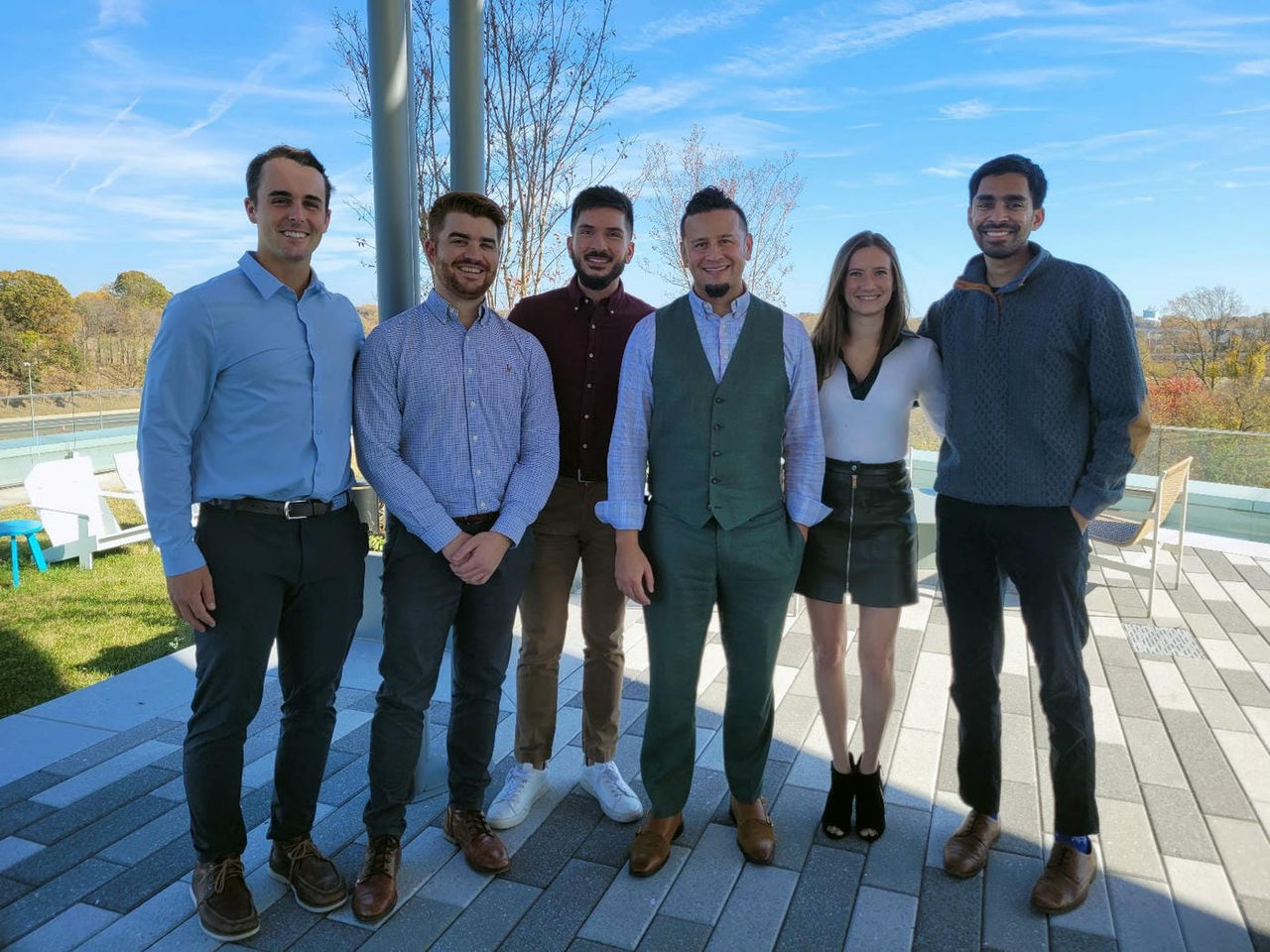
When I walk into a room with a client in the Department of Defense (DoD), my military experience gives me instant credibility. I don’t just understand their software challenges, I’ve lived them.
I worked for eight years in the US Marine Corps as a Communications Officer, which in the commercial workplace is equivalent to a Director of IT. I spent the first four years learning the role and deploying throughout the Pacific and Afghanistan, then I taught other IT Directors and spent the last year at the Pentagon on policy work.
Now I lead the team of Solutions Consultants focused on the Department of Defense at Appian. My team uncovers information about a client or prospect’s technical landscape and translates modernization issues into Appian Solutions. We build trust as a technical advisor both internally to our sales organization and externally.
As we’ve grown our team, my military experience has been essential to building out how we sell Appian to the DoD.
I get it! I’ve experienced the software challenges in my military career
When I’m talking to people in the DoD, they know how stressful it feels when the system doesn’t work, so they’re typically back to pen and paper. Or when they’re tracking reports in an Excel spreadsheet, that’s taking unnecessary time from mission critical work. I’ve been there and can understand exactly what they’re talking about.
These experiences allow us to dive quicker into why it’s a pain point. We ask questions like:
- What do you track today in spreadsheets? Which one impacts your day-to-day the most?
- What other tasks would you be able to do if you could automate any or all of this process?
- How would it help you make timely, more informed decisions?
Appian offloads a lot of the complexity in designing applications onto the platform itself; that can sometimes be hard to translate, which can make it even more challenging to sell. Especially in the public sector, it can be hard to articulate what a modernized, digitized future looks like. Organizations in the public sector are not focused as much on the bottom line. Instead, they're worried about putting solutions in place that are the least risky and have a smoother transition through change management.
Our team’s role is to ask questions to uncover the real pain points and build trust with clients to show how Appian can make a huge impact on how they operate.
How we’re scaling our DoD team at Appian
In the past few years within the public sector, we’ve seen very large growth year over year. When the DoD knows and trusts you, the growth becomes exponential as it is with built trust – it opens more doors.
Now our challenge is how we scale. How can we get so consistent on our team that when one Solutions Consultant isn’t available, someone else is there to support the client at the same high-quality level?
As our team is growing, I try to enable my team on three pillars:
- Technical knowledge of Appian.
- Ability to navigate the sales process.
- Industry knowledge. You don’t get far in the DoD if you don’t build trusted relationships. You can’t build relationships if you don’t understand the industry.
I want to ensure that when my team comes into a conversation, not only are they confident, but they're building that relationship from the first second they meet somebody.
With this growth, our team is hiring and we’re looking for candidates from a variety of backgrounds. If you’re transitioning from the military, government, or another field into the tech industry, you’re not alone at Appian.
 The DoD Solutions Consultant team: Pat Finley, Tim O’Connell, Aman Kapoor, Dario A. Reyes, Meredith Hoopes, Anagh Bhave, and Alex Brockman (not depicted)
The DoD Solutions Consultant team: Pat Finley, Tim O’Connell, Aman Kapoor, Dario A. Reyes, Meredith Hoopes, Anagh Bhave, and Alex Brockman (not depicted)
Top tip for transitioning from the military: Informational Interviews
Every transition is faced with difficulties and it’s no different when you decide to leave the military. It took me nine months post-separation to get a single job interview.
My big question was: How do you translate military experience that people don't understand into something that they see as valuable? I started reaching out to second or third connections for informational interviews, and that’s what I recommend to anyone going through that transition.
Reach out to people who have similar skill sets as you. Make it easy for the other person and offer a couple of options for 15 minute chats at specific dates and times. Show interest and curiosity in how they got to their role and what their day-to-day work looked like. Building those relationships while you’re still in the military is super helpful; the goal of these chats isn’t to ask for a role at their company. Understanding how people navigate the professional civilian world does wonders for translating military experience into resumes, knowing how to show your value to the organizations you are looking to work in, and help you practice your personal pitch for when those eventual job interviews occur. Informational interviews are the best way to experience these points in a low-pressure environment.
The knowledge that I got from talking to people, without having that burden of wanting something from them, made a huge difference in how I translated my military career and then transitioned that into getting a role.
How Appian supports veterans
Many others at Appian have a military background, including a few colleagues on our public sector team.
The AppianVeterans Affinity Group is a community that recruits, develops, recognizes, and elevates those who have both served in military and first-responder roles. It aims to help others have a better experience transitioning from military service to a corporate environment by helping alleviate barriers.
If you have a military background, your skills will be valued here and you don't just have to take our word for it, here is a Comparably article that listed Appian as one of the companies that love to hire veterans.
Veterans are crucial to helping us build our team in the public sector:
Learn more about job openings in the public sector.
